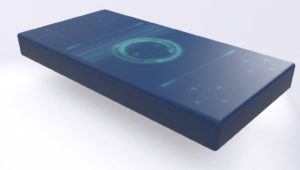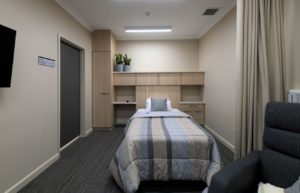Flinders University sleep experts are becoming embedded in a new trial to help people with their individual sleep disorders – via tests on a new mattress sensor.
The sleep disorder diagnosis and monitoring trial will be conducted using invisible sensor technology, REMi - developed by RMIT University for Melbourne-based R&D company Sleeptite - to investigate its capability as a validation tool for sleep disorders.

Flinders University project lead, Associate Professor Andrew Vakulin, said the research aimed to develop and validate sleep measurement metrics and algorithms using the REMi sensors, and to further enhance their capability to provide informative data.
"Sleep, exercise and healthy eating are essential for a healthy life, and missing out on sleep - including with an untreated sleep disorder - can have serious long and short-term health consequences," Associate Professor Vakulin says.
"Our research aims to prove that the Sleeptite REMi sensors give a reliable measure of sleep quality and sleep disorders, which will ultimately lead to new apps to help consumers improve their sleep health."
The trial was made possible due to funding received from the CRC for Alertness, Safety and Productivity.

REMi is the result of an Australian Government Cooperative Research Centres - Project (CRC-P) grant, which saw fundamental research taken from RMIT labs and translated into a commercial outcome.
Launched in March, the technology is designed to non-intrusively monitor aged care residents.
Sensors on the surface of a mattress provide real-time insights into residents' position, posture and sleep health status.
Sleeptite CEO Cameron van den Dungen says the new research harnessed REMi's potential to provide sleep diagnostic information outside of an aged care setting.
"With a recent report from the Sleep Health Foundation and Deloitte showing 1 in 10 Australians suffer from a sleep disorder, at a national economic cost of $14.4 billion, there has never been a greater need for research in this space," Mr van den Dungen says.
"I am so excited to see further scientific research show how the Sleeptite REMi platform can be used as a sleep diagnostic tool to determine sleep disorders such as sleep apnoea."
The technology will be put to the test by experts from the Flinders Health and Medical Research Institute Sleep Health team at Flinders University in collaboration with at RMIT.

Group co-leader, Professor Madhu Bhaskaran, from the Functional Materials and Microsystems Research Group at RMIT, says the team was excited to take their collaboration with Sleeptite into important new areas of research.
"The flexible and stretchable sensors developed at RMIT are part of what makes REMi unique - and it's this nearable and unfeelable technology that will enable sleep studies to be carried out in far more natural settings," he says.
"We look forward to discovering new avenues of partnership for this platform technology, and the opportunity to build deep collaborations to take this world-first system beyond aged care."
The REMi Sleep Diagnosis Evaluation Trial at Flinders is expected to last six months and include further sensor capability testing of the REMi sensors; identifying key sleep-related parameters; establishing relationships between sensor signals and sleep measurements; and developing an algorithm that will recognise sleep quality.
The REMi Sleep Diagnosis Evaluation Trial will involve 30 participants and will be evaluated against polysomnography (PSG) results, which are considered the industry gold standard.
Facts about sleep disorders and sleep health
- 1 in 10 Australians have a sleep disorder that can substantially affect their wellbeing, safety and productivity
- In the last financial year (2019-20) poor sleep cost the Australian economy $14.4 billion, equating to 0.73% of Australian GDP
- Less than 7% of these costs are for sleep disorder treatments
- Non-financial costs of the loss of wellbeing totalled an additional $36.6 billion
- These costs were distributed across the three major sleep disorders - obstructive sleep apnoea, insomnia and restless legs syndrome
Source: Sleep Health Foundation






